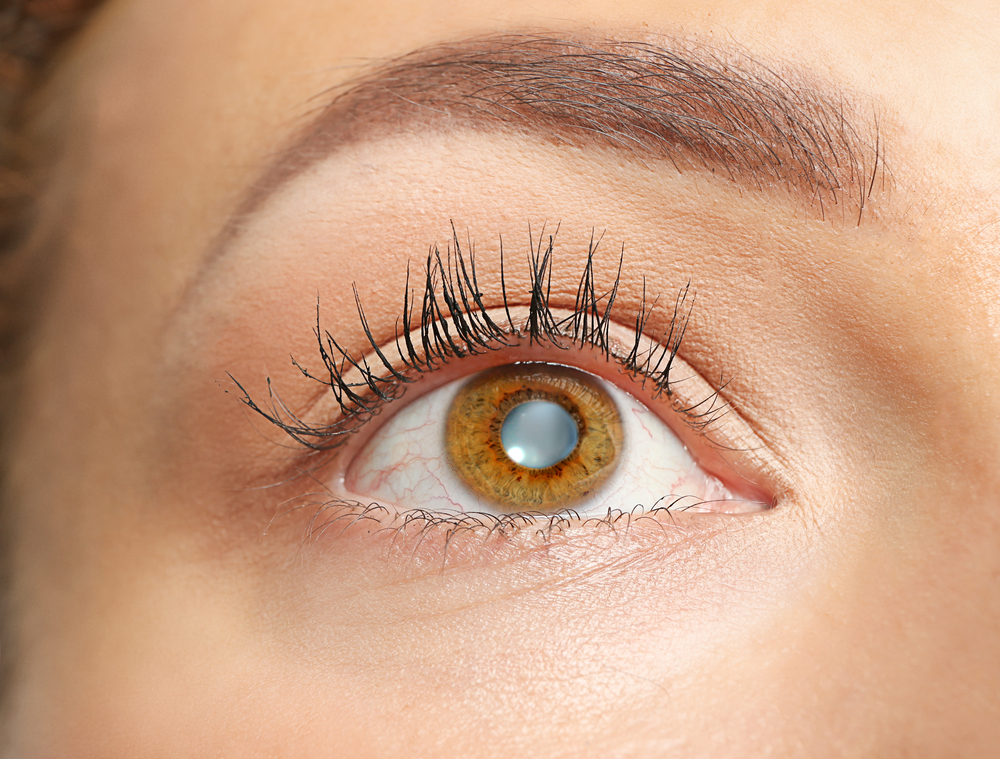
Cataracts are a common eye condition that can significantly impact your vision, often leading to blurred or cloudy sight. As you age, the natural lenses in your eyes can become increasingly opaque, making it harder to see clearly. While cataracts are a natural part of the aging process, there are steps you can take to potentially prevent or delay their development.
What are Cataracts and How Do They Develop?
Cataracts occur when the normally clear lens of your eye becomes clouded or opaque. This happens as the proteins in the lens begin to break down and clump together, causing the lens to become increasingly hazy. Over time, this can significantly impair your vision, making it difficult to perform everyday tasks like reading, driving, or recognizing faces.
Cataracts typically develop gradually, and the symptoms may not be noticeable in the early stages. As the condition progresses, you may experience symptoms such as:
- Blurred, cloudy, or dim vision
- Increased sensitivity to glare and light
- Difficulty seeing at night or in low-light conditions
- Double vision in a single eye
- Frequent changes in eyeglass or contact lens prescriptions
Understanding the risk factors for cataracts can help you take proactive steps to protect your eye health.
Risk Factors for Developing Cataracts
While cataracts are a natural part of the aging process, certain factors can increase your risk of developing them at an earlier age. Some of the primary risk factors include:
- Age: The risk of cataracts increases significantly as you get older, with the condition becoming more common after the age of 60.
- Ultraviolet (UV) Light Exposure: Prolonged exposure to UV light from the sun can contribute to the development of cataracts.
- Diabetes: Individuals with diabetes have a higher risk of developing cataracts, as the condition can cause changes in the lens of the eye.
- Smoking: Smoking has been linked to an increased risk of cataracts, likely due to the harmful chemicals and toxins in cigarette smoke.
- Steroid Medications: Long-term use of certain steroid medications, such as those used to treat asthma or arthritis, can increase the risk of cataracts.
- Eye Injuries or Inflammation: Trauma or inflammation in the eye can sometimes lead to the development of cataracts.
- Family History: If your close relatives have had cataracts, you may be at a higher risk of developing the condition.
Understanding these risk factors can help you take proactive steps to protect your eye health and potentially prevent or delay the onset of cataracts.
Can Cataracts Be Prevented?
While it's not possible to completely prevent the development of cataracts, there are several measures you can take to reduce your risk and potentially delay their onset. Here are some strategies for preventing cataracts:
- Protect Your Eyes from UV Exposure: Wear sunglasses or hats with wide brims when spending time outdoors to shield your eyes from harmful UV rays.
- Maintain a Healthy Lifestyle: Adopt a balanced diet rich in antioxidants, such as fruits, vegetables, and whole grains, which may help protect the lens of the eye.
- Quit Smoking: If you smoke, quitting can significantly reduce your risk of developing cataracts and other age-related eye conditions.
- Manage Underlying Health Conditions: If you have diabetes or other chronic health conditions, work closely with your healthcare provider to manage them effectively, as this can help minimize the risk of cataracts.
- Schedule Regular Eye Exams: Routine eye exams can help detect the early signs of cataracts, allowing for timely intervention and management.
By incorporating these preventive measures into your lifestyle, you can take proactive steps to protect your vision and potentially delay the onset of cataracts.
Why Regular Eye Exams are Essential in Cataract Prevention
Regular eye exams play a crucial role in the prevention and management of cataracts. Theses exams allow your optometrist to identify the early stages of cataract development, even before you notice any significant changes in your vision. This early detection enables timely intervention and management. Your eye doctor can closely monitor the progression of your cataracts, providing guidance on when surgical intervention may be necessary.
Based on your individual risk factors and eye health, your eye doctor can suggest specific preventive measures, such as adjusting your lifestyle, using prescription eyewear, or managing underlying health conditions. If cataracts do develop, your doctor can discuss the most appropriate treatment options to restore your vision and improve your quality of life.
Book Your Comprehensive Eye Exam with Total Vision Care Optometry Today
Cataracts are a common age-related eye condition that can significantly impact your vision, but there are steps you can take to potentially prevent or delay their development. By understanding the risk factors, adopting a healthy lifestyle, and scheduling regular eye exams, you can take proactive measures to protect your eye health and maintain clear, sharp vision as you age.
The key to preventing cataracts is to be proactive and work closely with your optometrist. They can provide personalized guidance and recommendations to help you maintain optimal eye health and reduce your risk of developing this condition.
At Total Vision Care Optometry, Dr, Abumaali is dedicated to helping you maintain healthy eyes and clear vision. Schedule your comprehensive eye exam to assess your risk of cataracts and discuss preventive measures tailored to your individual needs. Visit our office in Chowchilla, California, or call (559) 665-3797 to book an appointment today.








